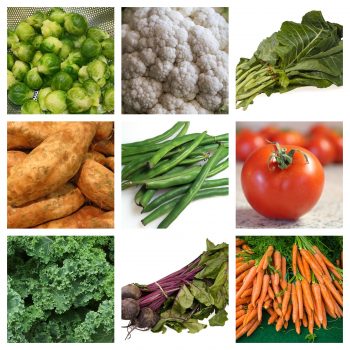Many dog owners in my world are concerned about every warning they receive via newsletters, articles, blogs, and not concerned about some things I think they ought to be. For instance there’s a naturally occurring substance called oxalate which is found in many foods. In combination with a genetic predisposition, excretion of calcium through urine, and some other issues, this can cause calcium oxalate bladder stones – but, it’s not likely unless you have a breed known for these stones. Foods that are high in oxalate also happen to be high in remarkable anti-oxidants and phytochemicals.
Beets, beet greens, most nuts, collard greens, kale, mustard greens, sweet potato, tomato (fresh, and tomato paste), carrots, green beans, apricots, most berries, mango, a number of grains – and more! These foods have properties that promote eye health, heart health, skin health…why avoid them if your dog is healthy and not prone to calcium oxalate bladder stones?
The Thyroid No-No foods (but read this before eliminating them)
Cruciferous vegetables such as broccoli, kale, cauliflower, cabbage and Brussels sprouts are on the list of foods not to feed if the dog is hypothyorid because they contain natural chemicals called goitrogens that can interfere with thyroid hormone synthesis. Foods that aren’t talked about nearly as much in this regard, but that do include goitrogens include sweet potato, soy (I don`t talk about soy for dogs with any joy, but it does fall into this category) and turnip. The happy fact that cooking inactivates these chemicals is usually not talked about. The truth is that we can’t feed a whopping amount of veggies to dogs because their GI tracts can’t handle it, so the small amount of cruciferous veggies we include in the diet is highly unlikely (I’ve never seen it despite all the noise about it) to affect thyroid function. The health of the thyroid gland is impacted by a variety of things including iodine and selenium in the diet. The mineral selenium is needed for certain activities within the thyroid gland, and a selenium deficiency combined with borderline iodine deficiency can produce a problem. It’s not as simple as not feeding cruciferous veggies. In fact, the anti-cancer properties that these veggies contain are something your dog shouldn’t miss out on unless there’s valid reason.

